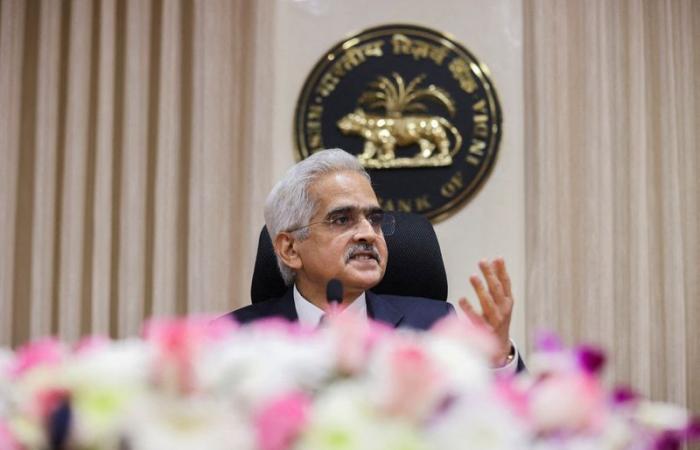The Reserve Bank of India’s rates committee further diverged in its views on the need for high interest rates to control inflation, with some fearing that economic growth would be sacrificed, according to minutes of the latest policy meeting monetary policy published on Friday.
The RBI’s six-member Monetary Policy Committee (MPC), split equally between internal and external members, kept the repo rate unchanged at 6.50 per cent for an eighth consecutive meeting earlier this month.
However, two external members voted in favor of reducing the rate by 25 basis points and changing the policy direction from “withdrawal of accommodation” to “neutral”.
Ashima Goyal, who voted for a cut for the first time, said inflation itself is the best measure of potential growth under India’s growth transition conditions.
“If headline inflation is near target and core inflation is below target, and the incoming data confirms this, this means that growth is below potential and the NIR (rate (neutral real policy rate) is higher than the neutral rate; real policy rates can therefore fall safely.
Based on average inflation in the current fiscal year, the current real rate is around 2 percent, much higher than the neutral real rate of 1 percent, which is ideal for the economy, Mr. .
Annual retail inflation fell to 4.75% in May from 4.83% in April, while core inflation hit a record high of 3.12%. Headline inflation is expected to average 4.5% this fiscal year, compared to the RBI’s target of 4%.
Professional forecasters surveyed by the RBI have projected growth in 2025/26 and 2024/25 to be 0.75% lower than in 2023/24, Jayanth Varma said, voting for a rate cut for the second consecutive meeting .
“This is an unacceptable sacrifice of growth considering that headline inflation is only expected to exceed the target by around 0.5% and that core inflation is extremely benign.
Most members who voted to keep rates on hold believe food inflation remains volatile and needs to be closely monitored.
Food prices, which make up almost half of the overall consumer price basket, have increased by more than 8% since last November and recorded growth of around 8.7% in April and May.
“Food prices preclude consideration of possible changes in the stance of monetary policy,” wrote Deputy Governor Michael Patra.
The growth outlook for 2024-25 remains optimistic as economic activity maintains its momentum, Governor Shaktikanta Das said.
The economy grew at a faster-than-expected pace of 7.8% year-on-year in the first three months of 2024.
“Resilient growth allows monetary policy to focus unambiguously on inflation […]. Any hasty action in a different direction will cause more harm than good,” Mr. Das said. (Reporting by Swati Bhat; Editing by Savio D’Souza)






